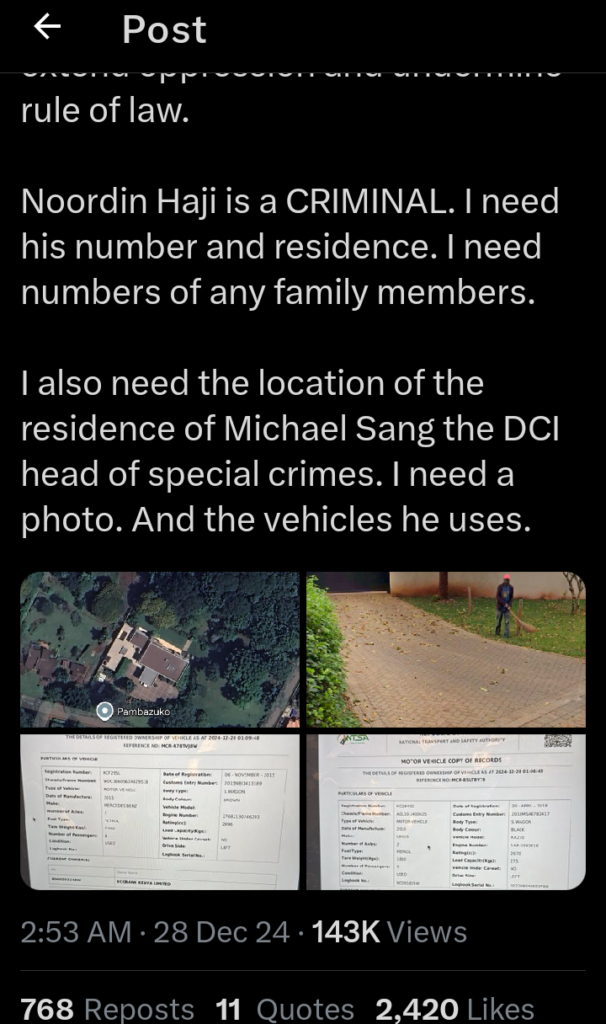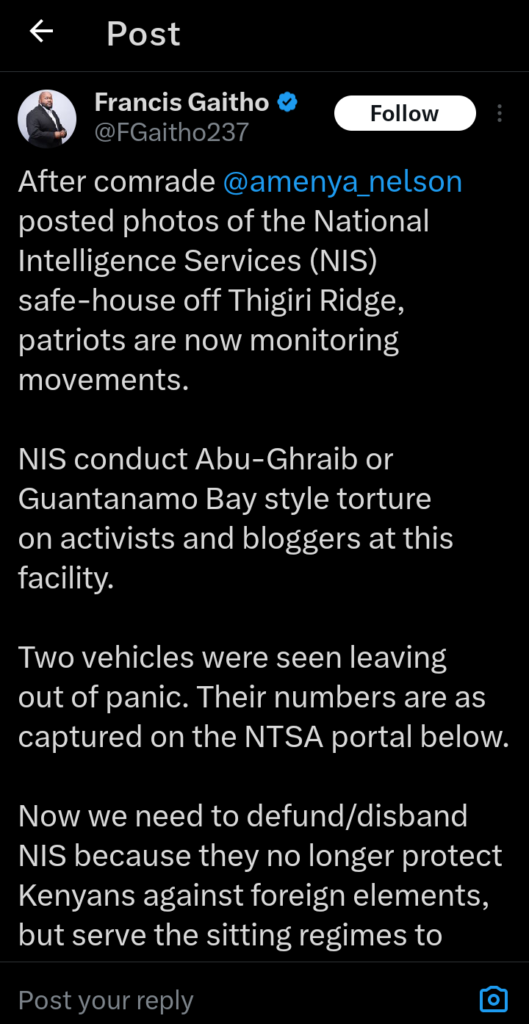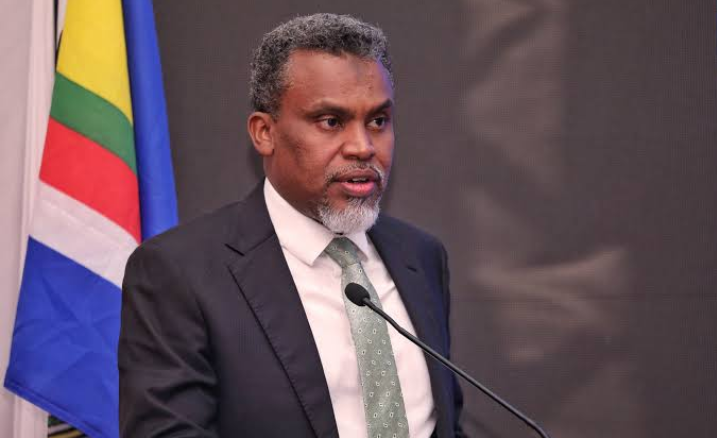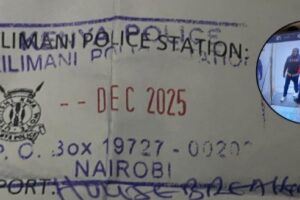The recent post by Amenya Nelson, which included photos of the National Intelligence Service (NIS) safe-house located off Thigiri Ridge, has ignited serious concerns among Kenyans.
The images have prompted a new wave of controversy regarding the role of NIS in the country, with many now closely monitoring its activities.
The post revealed a disturbing reality: that the NIS facility is allegedly used for activities similar to those of notorious detention centers like Abu Ghraib or Guantanamo Bay, where activists and bloggers are said to be tortured.
According to the statement, there have been reports of vehicles seen leaving the NIS safe-house in what is described as a state of panic.
The license plates of these vehicles, which were captured on the National Transport and Safety Authority (NTSA) portal, raise further questions.
The suggestion is that the NIS, once thought to be a protective agency, is now being used to suppress dissent and target those who challenge the government.
This revelation has led to growing calls for the defunding or disbanding of NIS, with critics claiming that the agency no longer serves its original purpose of protecting Kenyans from external threats.
Instead, the agency is accused of serving the interests of the sitting government, engaging in activities that undermine the rule of law and curtail freedoms.
The notion that an intelligence service designed to ensure national security is now allegedly being used to oppress citizens is a serious accusation that cannot be taken lightly.
Adding fuel to the fire, the statement targets two key figures in the Kenyan government: Noordin Haji, the Director of Public Prosecutions (DPP), and Michael Sang, the Director of Criminal Investigations (DCI) head of special crimes.
This concerning call for personal information raises serious ethical and legal concerns, as it crosses the line between legitimate dissent and the incitement of violence or harassment.
Michael Sang, the head of special crimes at DCI, is also singled out in the statement.
Calls for the location of his residence, photos of him, and information about the vehicles he uses are part of the growing sense of anger and distrust surrounding the intelligence and law enforcement agencies in the country.

The suggestion is that these figures are part of a corrupt system that allows the oppression of ordinary citizens in favor of maintaining the power of the current regime.
The rising tension is not just about the actions of NIS or the individuals involved but points to a larger issue: the erosion of democratic values and human rights in Kenya.
While the call to defund or disband NIS may seem extreme to some, it is a reflection of the growing frustration with government institutions that are perceived as tools of repression rather than protection.

The situation demands a serious national conversation about the role of intelligence agencies, the limits of governmental power, and the protection of citizens’ rights.
It is clear that the public is no longer willing to stand by as state institutions, once designed to serve the people, are turned against them in an effort to maintain political control.





















Add Comment